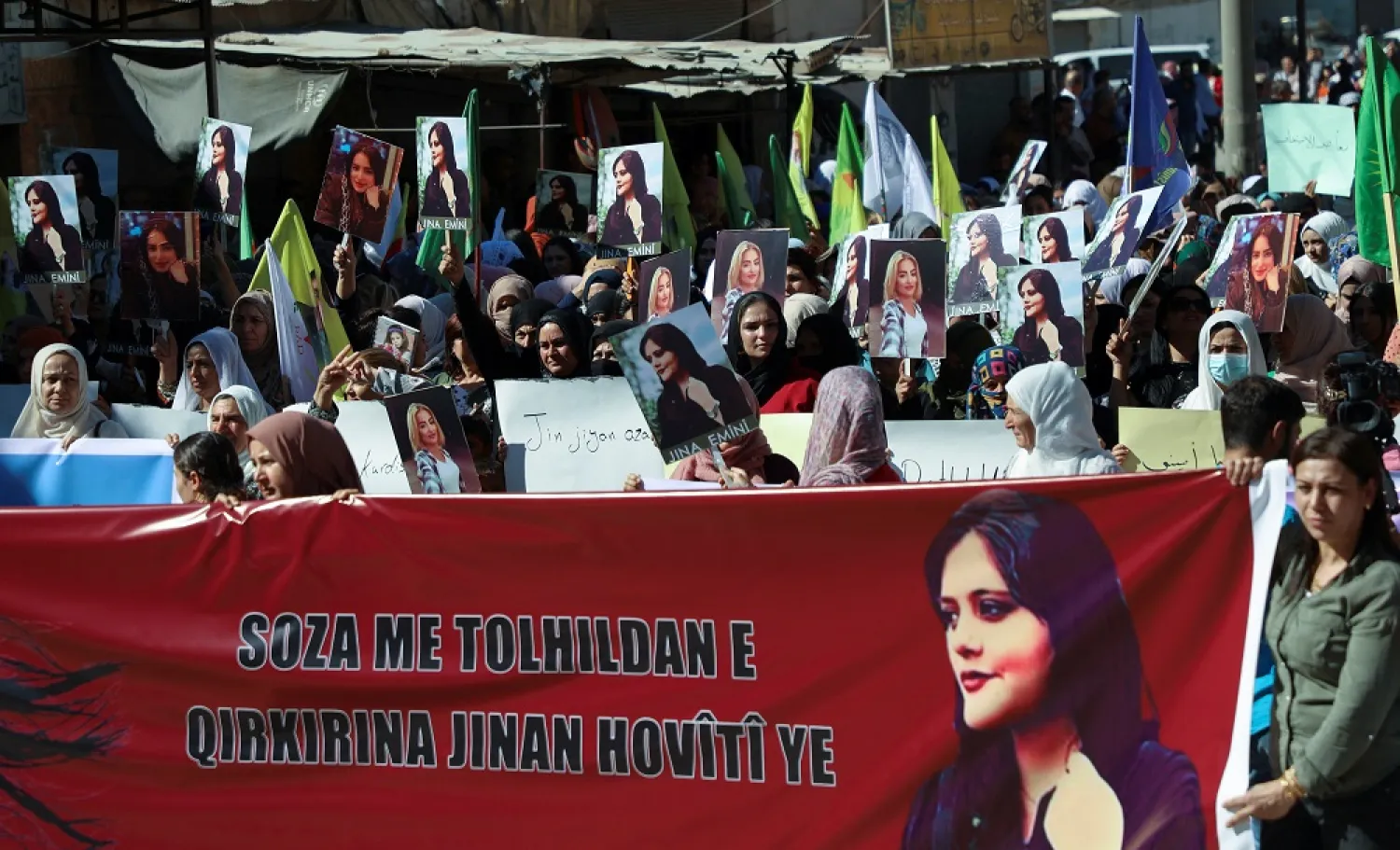Hundreds of women protested in Kurdish-controlled northern Syria on Monday over the death of an Iranian Kurdish woman in the custody of Iran's morality police, with some cutting their hair and burning headscarves in an echo of demonstrations in Iran.
Mahsa Amini, 22, died earlier this month after being arrested in Tehran by police enforcing the country's strict restrictions on women's dress. Her death has touched off Iran's biggest unrest since 2019.
Protesters held aloft pictures of Amini as they marched through a street in the northeastern Syrian city of Qamishli.
"She was subjected to brutal treatment by the Iranian tyrants. We don't accept this insult to any woman in society," said Sawsan Hussein, 52, an employee of the Kurdish-led administration who was at the protest.
Amini's father has said she had no health problems and that she suffered bruises to her legs in custody and holds the police responsible for her death.
Iranian police have denied harming her, saying she fell ill as she waited with other detained women. Iran's foreign ministry on Monday accused the United States of using the protests to try to destabilize the country.
Kurdish groups have controlled swathes of north and northeastern Syria since the early days of the Syrian war, establishing autonomy as President Bashar al-Assad - an ally of Iran - sought to put down rebellions elsewhere in Syria.
"We support the protests and uprisings in Iran," said Arwa al-Saleh, a member of the Kongra Star women's rights organization that called for the protest.
"No to injustice, no to oppression ... yes to women's rights," she said.
Women have played a prominent role in the demonstrations in Iran, waving and burning their veils, with some publicly cutting their hair in a direct challenge to clerical leaders. Iran's Kurdistan province is one of the region's swept by unrest.
The Kurdish ethnic minority live mostly in a region straddling the borders of Armenia, Iraq, Iran, Syria and Türkiye.
Dozens of people protested over Amini's death on Sunday in the Iraqi Kurdish town of Suli. Last week, one of Iraq's main Kurdish leaders - Masoud Barzani - called her family to pay condolences.









